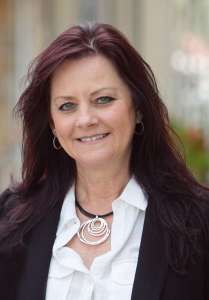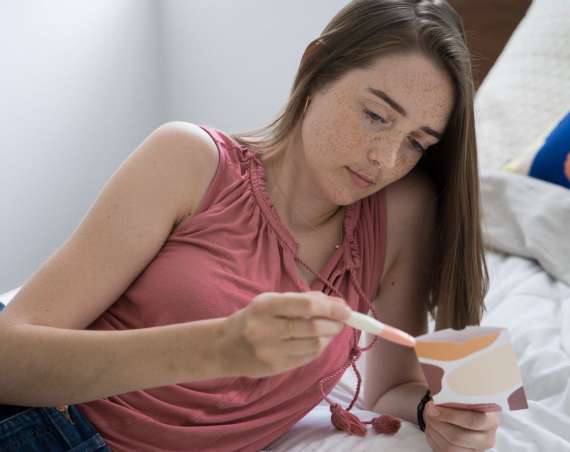It doesn’t happen often, that VCs switch sides and become startup founders, but when they do it always makes for a great story and valuable insights. Today we’re excited to share an interview with Tammi Jantzen, co-founder of Astarte Medical and former VC with almost 20 years of experience funding startups focused on improving children and women’s health. Together with her co-founder Tracy Warren, Tammi Jantzen has weathered numerous financial crises as VCs .
Astarte Medical is a tech healthcare startup founded in 2016 with the goal to improve premature infant outcomes. The company has raised a total of $8.5 million over the course of 4 funding rounds.
In our interview Tammi Jantzen shares some insights about how their experience as former VCs is helping them manage the uncertainty of COVID-19 as entrepreneurs now and what advice she has for early-stage startup founders, who are thinking about fundraising right now.

Let’s start by talking about Astarte – what does the company do? What problem are you solving?
Tammi Jantzen: Astarte Medical is a precision nutrition company using software and predictive analytics to improve outcomes by supporting feeding protocols, practice and decision making in the neonatal ICU (NICU). Optimal nutrition early in life can positively impact not only physical growth, but neurological development as well. NICUtrition by Astarte Medical is a real-time clinical decision support tool to digitally implement a hospital’s own feeding protocol and promote compliance to overcome the challenges of manual processes, understand protocol adherence or lack thereof, and to gather useful insights from feeding data. NICUtrition provides data and insights to clinical teams and allows them to track improvements in feeding milestones over time and observe correlating patient outcomes.
Due to advances in modern medicine, infants can now survive at just 22 weeks gestational age, which is incredible! Unfortunately, many preterm infants (infants born before 37 weeks gestational age) do not grow after birth for many days and their subsequent growth does not keep up with the normal rate of growth they would have achieved had they been nourished by their mother in utero. As survival rates for extremely preterm infants improve, attention is now focused on improving the quality of survival through optimal nutrition management through successful progression of feeding. In order to achieve appropriate rates of weight gain – almost twice that of a term infant – and to avoid postnatal growth failure, early and adequate nutritional support is needed. While technology in support of life saving measures is rampant in the NICU, nutritional expertise remains in short supply and feeding difficulties are the primary contributor to increased length of stay and result in the prolonged duration of central lines and tube feeding. Although proper nutrition has a direct impact on proper growth and cognitive outcomes, it is rarely taught in medical school and expertise is limited to dietitians, where present, or a clinical researcher who focuses on nutrition. In addition, clinician variability in individual practice attitudes, experience, and knowledge can influence the implementation of a feeding strategy.
What is your focus right now? Have your priorities changed during the COVID-19 pandemic? Has your business or progress been affected?
Tammi Jantzen: We’ve all felt the impact of COVID-19. Life as we know it may forever be changed – in ways we can’t possibly imagine yet. As the co-founder and CFO of a healthcare IT startup, planning for the unknown remains a challenge. Initially our two biggest concerns were taking care of our team and extending our cash runway. For startups, cash is ALWAYS king. This is even more true in a time of economic crisis. We were fortunate to have raised money at the end of 2019 so the first thing we did was re-examine our budget and figure out how to make our cash last as long as possible with the ultimate aim of keeping our team intact. Extending the cash runway comes with trade-offs… figuring out the nice-to-haves vs. the need-to-haves. The goal is to reduce the burn while continuing to make progress and hit milestones. Tricky indeed.
We are learning as we go as to how to deal with the economic fallout of COVID-19. We sell our software to hospitals and it was evident in the early days of the pandemic that, unless your product or service had an immediate COVID-19 impact, they weren’t buying. They weren’t even scheduling calls. We challenged our team to strategize about alternatives to selling our software to hospitals – we pushed them to think outside the box to figure out other ways to monetize our platform. The good news is that we have developed an elegant robust feeding and nutrition platform that can be utilized entirely remotely which, due to COVID-19, may prove to be more useful and efficient to our hospital clients. The key is versatility and creativity.
We often see successful startup founders move into VC. On the other hand we don’t see many VCs becoming startup founders themselves. So in a way, you’re a bit of an exception! What motivated you to “switch sides”?
Tammi Jantzen: After working together for almost 15 years in venture capital, Tracy Warren (my co-founder) and I set out to blaze a path investing in companies we were most passionate about – those with technologies focused on women’s and children’s health and wellbeing. We saw an enormous opportunity to add value to an underserved and underfunded market. In fact, the term “FemTech” had yet to be coined. We put our own money to work investing under Astarte Ventures with the intent to build a track record in the space, and then raise a larger fund around our successful thesis.
In an attempt to gain insights into clinical needs and pain points, we visited women’s and children’s hospitals across the country talking to innovation groups and researchers. It was during a visit to Brigham and Women’s Hospital in Boston that we met our Scientific co-founder, Katherine Gregory, RN, PhD. Kate had a unique background with hands-on clinical experience alongside academic and research credentials. She started her career as a NICU nurse, then received her PhD and had been doing research in her lab at Harvard on preterm infant microbiome and gut health – long before “microbiome” was a buzzword. In that initial meeting, Kate opened our eyes to the challenges of preterm infants and early life nutrition, and we were immediately hooked. Kate’s passion quickly became our passion. We didn’t want to just invest in her idea, we wanted to build the company ourselves. It was that initial meeting with Kate that prompted our entrepreneurial shift.
You’ve raised $8.5M, what was fundraising like for you? What surprised you, being on the “startup side” of the table?
Tammi Jantzen: For the record, I am proud to say Astarte Medical closed a $5M Series A in early 2019 and a $3.5M Convertible Note at year end. However, the fundraising journey was not at all what we expected it to be. Having spent so much time in early stage venture capital investing, we began the Series A fundraising process thinking we knew exactly what we needed to do to win over investors. We thought we knew who our investors would be and how long it would take to fundraise. We focused on the business and the opportunity and shared our vision for revolutionizing care. It became clear early on that we had set very unrealistic expectations on how much time and energy would be expended to raise this round of funding. Sitting on the other side of the table as entrepreneurs, we gained an appreciation for all the founders that had come before us as investors for over 15 years. The worst part was investors that could never get to a “yes” or “no”. Hearing “no” is always better than perpetual indecision. Nothing happened as quickly as we thought it should, and there was a lot of “tire kicking” that sucked up so much of our time that ultimately never led to an investment. But we persevered! It was extremely validating to raise $8.5M last year from an incredibly supportive group of investors who share the same vision.
Do you have advice for founders, who are fundraising right now?
Tammi Jantzen: I can only image that fundraising in the current economic climate will require much more time than it did pre-pandemic. Time is the one resource you can’t get back. My advice to founders who are fundraising is to only focus on those investors who can lead your deal. Do your homework on the investment fund, not only to determine if they can lead, but also to determine that your company fits squarely within their investment thesis. Make that list and be diligent about sticking to it.
We made the mistake of chasing after all investors early on and it was a huge time sink. Looking back, we spent 80% of our time raising 20% of the money. We had interest from many great smaller investors, however, most small investors will not commit unless you have a term sheet from a sizable lead investor. Find your lead and the rest will follow.



